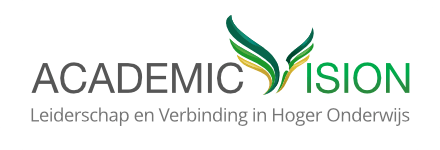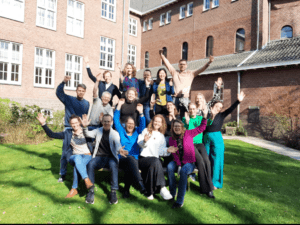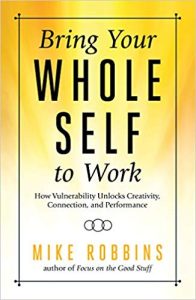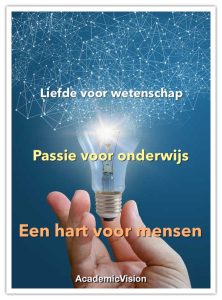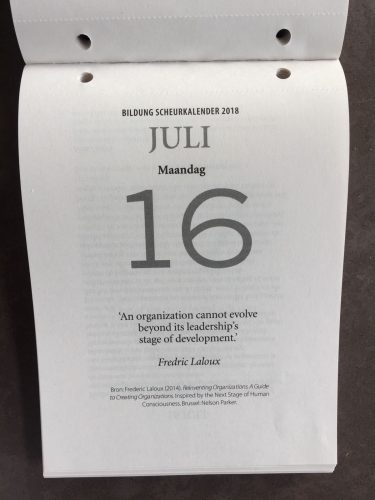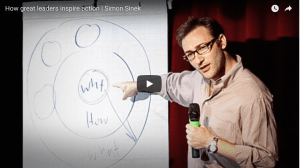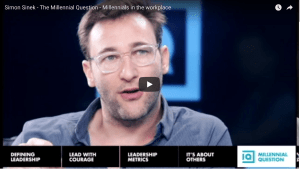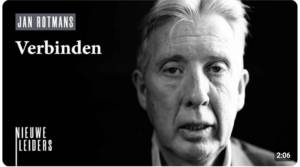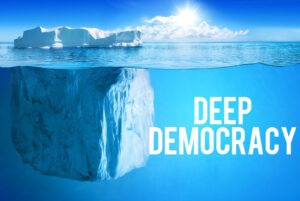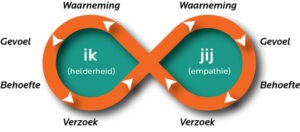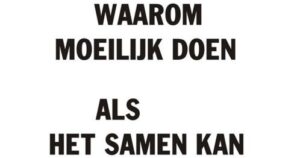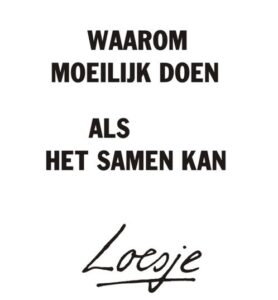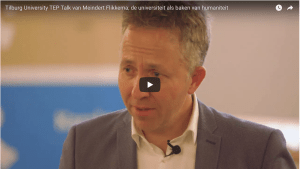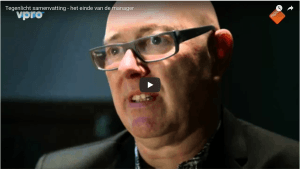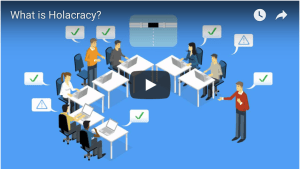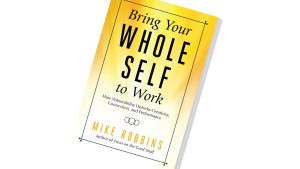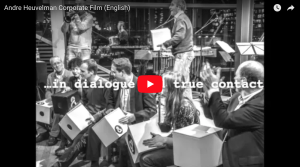Inspiratie en verdieping
Om continu te blijven groeien en innoveren, laten wij ons graag inspireren, jij ook?
Hieronder vind je onze blog en een aantal voorbeelden van denkers, sprekers en schrijvers die ons aanspreken op het gebied van leiderschap, verbinding, organisatie ontwikkeling en persoonlijke ontwikkeling. Kom jij een inspirerend boek, artikel of filmpje tegen? Laat het ons weten!
Leiderschap

Nederland zoekt Leiders (boek)
In een tijd waarin de maatschappij en onze levensomstandigheden in hoog tempo veranderen, is de roep naar leiderschap luider dan ooit. John Schrederhof, Nederlands bekendste expert op het gebied van leiderschapsontwikkeling, schets in dit inspirerende boek een helder beeld van de leiders die we in grote aantallen nodig hebben om de uitdagingen waar we voor staan het hoofd te bieden. Het boek dient als een routekaart en inspiratiebron voor iedereen die leiderschap wil ontwikkelen in zichzelf en bij anderen.

Leading from the emerging future (book)
Our Time Is Now
We have entered an age of disruption. Financial collapse, climate change, resource depletion, and a growing gap between rich and poor are but a few of the signs. Otto Scharmer and Katrin Kaufer ask, why do we collectively create results nobody wants? Meeting the challenges of this century requires updating our economic logic and operating system from an obsolete ego-system focused entirely on the well-being of oneself to an eco-system awareness that emphasizes the well-being of the whole. Filled with real-world examples, this thought-provoking guide presents proven practices for building a new economy that is more resilient, intentional, inclusive, and aware.
Both writers are connected to the MIT (Massachusetts Institute of Technology) and the Presence Institute.

Echte leiders dienen (boek)
Leiderschap is enorm in beweging. Dat het anders moet dan in de 20ste eeuw zien de meeste mensen wel. Maar hoe anders en hoe doe je dat? Dienend-leiderschap wordt in dit kader steeds vaker genoemd. Wat is dienend-leiderschap? Welke effecten heeft het? Waarom is het een antwoord op de problemen waar we voor staan? En hoe geef je er handen en voeten aan? Op basis van wetenschappelijk onderzoek geeft Inge Nuijten antwoorden en praktische inzichten waarmee je direct aan de slag kunt.
Dus, wie een boek zoekt om concreet handen en voeten te geven aan het begrip dienend-leiderschap, kan met dit boek zijn hart ophalen. Het boek staat bol van de tips en ontwikkelingsvragen voor het ontwikkelen van dienend-leiderschap. Zoals bewustwordingsvragen en tips om meer verbondenheid in jouw team te creëren.
Kortom, als je je wilt ontwikkelen tot dienend-leider krijg je hier volop concrete tools om mee aan de slag te gaan. Daarbij komt één belangrijk aspect steeds terug: dienend-leiderschap is een levenshouding, geen trucje…
Organisatieontwikkeling
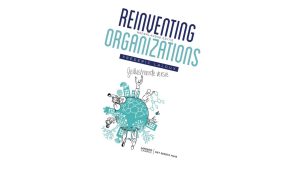
Reinventing organizations (boek)
Nederlandse editie van de internationale bestseller die wereldwijd een omslag in het denken over organisaties teweegbracht. De auteur, consultant die organisaties adviseert over een fundamenteel andere managementaanpak, kantelt het oude beeld van bedrijven naar een nieuw model voor organisatie en leiderschap.
Moderne organisaties lijken vast te zitten in een verouderd stelsel. Werknemers raken gedemotiveerd, ondernemers zoeken naar een ander soort management, vertrouwde modellen schieten tekort. Kunnen we op die manier eigenlijk nog wel verder? Reinventing organizations biedt een antwoord. Het boek laat zien hoe we aan het begin staan van een nieuw tijdperk. Daarin dragen belangrijke doorbraken bij aan een diepere voldoening voor management, medewerkers en klanten. Hoe breng je je eigen authenticiteit terug in je werk? Hoe eenvoudig kan een organisatie weer zijn? Wat kun je bereiken door met een gezamenlijk en breed gedragen doel te werken? Met een veelvoud aan praktijkvoorbeelden en inspirerende getuigenissen biedt Reinventing organizations een venster op de organisatie van de toekomst. Dit boek is een aanrader voor wie nieuwe manieren van werken en leven wil begrijpen en combineren. Een theoretische en praktische handleiding voor wie de kracht van vrijheid, vertrouwen en wendbaarheid optimaal wil benutten.

Theorie U (boek)
Theorie U gaat over persoonlijk leiderschap, met als kernvraag: Hoe kan ik als mens een volstrekt eigen bijdrage leveren aan de maatschappij, die tegelijkertijd aansluit bij wat de omgeving echt nodig heeft? Otto Scharmer nodigt ons uit om de wereld op een nieuwe manier te zien. Waar en hoe we onze aandacht inzetten is de sleutel tot wat we cre ren. Hetgeen ons vaak weerhoudt om ‘in het nu te zijn’, is wat Scharmer onze blinde vlek noemt, een plek in ons innerlijk waaruit we handelen. Het is van het grootste belang om ons van deze blinde vlek bewust te worden. Door het U-proces te doorlopen leren we in contact te komen met ons ware zelf. Scharmer noemt dit ‘presencing’, ’to sense and bring in the present one’s highest future potential’, ofwel het hoogst haalbare toekomstige potentieel waar te nemen en in het nu te realiseren. Theorie U wordt daarom gezien als h t nieuwe managementboek van deze tijd: niet uitgaan van het verleden, maar uitgaan van hoe de toekomst zich in het nu manifesteert! Inmiddels werken wereldwijd vele organisaties en adviseurs volgens Theorie U.

The fifth discipline (boek)
Peter Senge, founder and director of the Society for Organisational Learning and senior lecturer at MIT, has found the means of creating a ‘learning organisation’.
In The Fifth Discipline, he draws the blueprints for an organisation where people expand their capacity to create the results they truly desire, where new and expansive patterns of thinking are nutured, where collective aspiration is set free, and where people are contually learning together. The Fifth Discipline fuses these features together into a coherent body of theory and practice, making the whole of an organisation more effective than the sum of its parts.
Mastering the disciplines will:
*Reignite the spark of learning, driven by people focused on what truly matters to them.
*Bridge teamwork into macro-creativity.
*Free you from confining assumptions and mind-sets.
*Teach you to see the forest and the trees.
*End the struggle between work and family time.
The Fifth Discipline is a remarkable book that draws on science, spiritual values, psychology, the cutting edge of management thought and Senge’s work with leading companies which employ Fifth Discipline methods. Reading it provides a searching personal experience and a dramatic professional shift of mind.
This edition contains more than 100 pages of new material about how companies are actually using and benefiting from Fifth Discipline practices, as well as a new foreword from Peter Senge about his work with the Fifth Discipline over the last 15 years.
